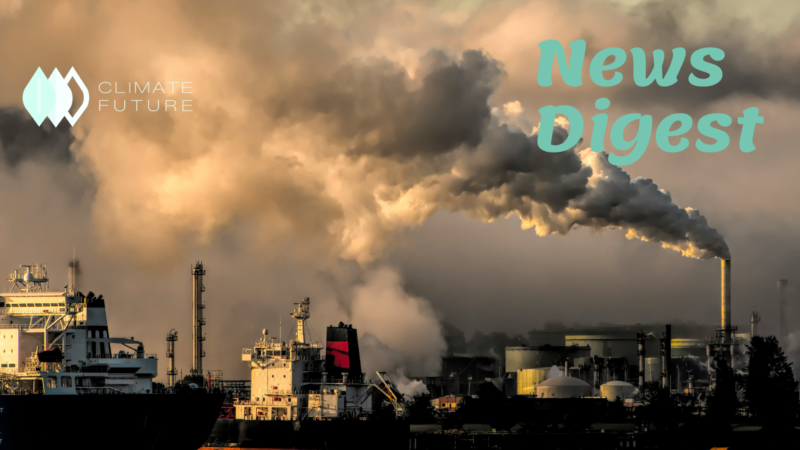Avoiding disaster in a dangerous world
Cyclone Freddy was an absolute disaster for Malawians. During its record-breaking month-long catastrophic rampage through southern Africa this March, the storm blasted through the African country twice. The unprecedented duration of the extreme weather event would have been difficult for any country to deal with. But for Malawi, one of the world’s most vulnerable underdeveloped countries, it was disastrous. Hundreds of people died, more than 500,000 were displaced, and hundreds of hectares of crops were washed away. Freddy’s impact is just one example of the increasing amount of complex and costly disasters affecting increasing numbers of people, which encouraged 187 nations to sign an international disaster risk reduction accord in 2015. The Sendai Framework, named after the Japanese city where it was adopted, is a United Nations international agreement aimed at reducing disaster losses. It aims to significantly reduce disaster-related mortality, reduce disaster-related infrastructure damage, and strengthen early warning systems by 2030.
Race to Zero in Asia and Pacific: Our Hopes in the Climate Fight
The latest synthesis report from the Intergovernmental Panel on Climate Change alarmed the danger of deadly heatwaves to serious droughts and hurricanes which affect all communities and economies. It is a fact that the people of Asia and the Pacific are all too familiar with. Last month’s “worst April heatwaves in Asian history” were just a taste of the worsening climate consequences that will continue to confront the settlers in the years ahead. The most recent analysis shows that the sea level is rising at a somewhat faster rate in portions of the region than the global average, threatening the existence of low-lying atolls. Annual socioeconomic loss due to climate change is increasing and is expected to double in the worst-case climatic scenario. Inequity is a new issue as climate change creeps over the region. Asia and the Pacific already account for more than half of global greenhouse gas emissions, and their contribution is increasing. But there is another ray of light in the region: 39 countries have pledged to achieve carbon neutrality and net zero emissions by 2050 and 2060, respectively. Renewable energy costs are reducing practically everywhere, with installed capacity more than tripling over the last decade. This momentum must pick up speed like a bullet train because nothing less than a breakthrough in difficult-to-address industries will give a good chance of averting catastrophic global warming.
Asia’s Record-Setting Heat Wave Demonstrates Dangers of Warming World
Asia is still in the grip of a scorching heat wave, echoing climate experts’ projections that 2023 will be the world’s warmest year. A growing El Nino weather trend is pushing temperatures to historic levels in southern regions of the continent, a foreboding portent ahead of the northern hemisphere summer. Over the weekend, Vietnam reported its highest-ever temperature of 44.2 degrees Celsius, prompting power outages, and Laos is also certain to set new records. After the heat index reached the “danger” zone, the Philippines reduced classroom hours, reflecting the potentially lethal combination of heat and humidity. Temperatures in Thailand stayed above 40 degrees Celsius in several northern and central provinces for much of last week, driving up power demand to a new high. A consortium of businesses and banks has requested the government to draft an action plan to deal with a projected three-year drought. Hot temperatures have also roasted regions of China, India, and Bangladesh in recent weeks. Last month, Yunnan province, a major aluminum hub in southwest China, had the worst drought in a decade. Following high temperatures in April that forced school closures in certain states and caused at least 11 people to die of heat stroke while attending an event, India is on high alert for future heat waves.
Exclusive: Sequoia’s Surge leads $7.4m round of SG climate-tech firm
Unravel Carbon, a Singapore-based climate-tech business, has raised $7.4 million in a seed round headed by Sequoia India’s Surge. It focuses on assisting Asian businesses in tracking and reducing their carbon emissions, with a concentration in Scope 3 carbon emissions. Its services include a decarbonization platform as a service and access to Unravel’s sustainability specialists. The Y Combinator graduate business turns firms’ accounting data into comprehensive supply chain carbon data, provides customized climate routes to ‘net zero’ with climate solutions, and auto-populates regulatory disclosure reports. It intends to create Asia’s largest archive of enterprise carbon datasets. The organization adheres to globally accepted standards for emissions inventory development, such as the GHG Protocol and ISO 14064, and it employs Intergovernmental Panel on Climate Change computation methodology. Unravel Carbon’s output will be interrogable and auditable, with the platform automatically generating supporting documentation for external assurance audits. Recently, it expanded its operations into Australia and New Zealand with strict legal requirements on reducing emissions and risk exposure to climate change.
References
https://news.un.org/en/story/2023/05/1136087
https://www.globalissues.org/news/2023/05/09/33746
https://time.com/6277894/asia-heat-wave-records-health-dangers/
https://www.techinasia.com/exclusive-sequoias-surge-leads-74m-sg-climate-tech-firm



